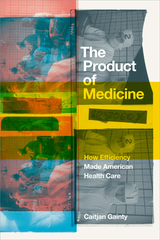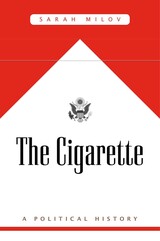
Los Angeles Times Book Prize Finalist
Winner of the Willie Lee Rose Prize
Winner of the PROSE Award in United States History
Hagley Prize in Business History Finalist
A Smithsonian Best History Book of the Year
“Vaping gets all the attention now, but Milov’s thorough study reminds us that smoking has always intersected with the government, for better or worse.”
—New York Times Book Review
From Jamestown to the Marlboro Man, tobacco has powered America’s economy and shaped some of its most enduring myths. The story of tobacco’s rise and fall may seem simple enough—a tale of science triumphing over corporate greed—but the truth is more complicated.
After the Great Depression, government officials and tobacco farmers worked hand in hand to ensure that regulation was used to promote tobacco rather than protect consumers. As evidence of the connection between cigarettes and cancer grew, scientists struggled to secure federal regulation in the name of public health. What turned the tide, Sarah Milov reveals, was a new kind of politics: a movement for nonsmokers’ rights. Activists took to the courts, the streets, city councils, and boardrooms to argue for smoke-free workplaces and allied with scientists to lobby elected officials. The Cigarette puts politics back at the heart of tobacco’s rise and fall, dramatizing the battles over corporate influence, individual choice, government regulation, and science.
“A nuanced and ultimately devastating indictment of government complicity with the worst excesses of American capitalism.”
—New Republic
“An impressive work of scholarship evincing years of spadework…A well-told story.”
—Wall Street Journal
“If you want to know what the smoke-filled rooms of midcentury America were really like, this is the book to read.”
—Los Angeles Review of Books

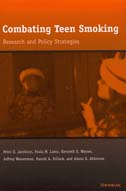
Synthesizing recent research regarding the prevention and control of adolescent smoking, this book offers the reader a convenient compendium of what is known about adolescents and tobacco use; it also highlights areas where additional research is needed. Based on their assessment of the considerable amount of information presented, the authors recommend various ways to help slow--or even reverse--the recent rise in teenage smoking. A comprehensive antitobacco program might include, for example, antismoking media campaigns based on social marketing strategies, clean indoor air laws, and the increase of cigarette prices.
Combating Teen Smoking will appeal to a broad spectrum of readers concerned about the problem of adolescent tobacco use, including policymakers who are actively seeking ways to help reduce teen smoking.
Peter D. Jacobson is Associate Professor, University of Michigan School of Public Health. Paula Lantz is Assistant Professor, University of Michigan School of Public Health. Kenneth Warner is Richard D. Remington Collegiate Professor of Public Health and Director, University of Michigan Tobacco Research Network. Jeffrey Wasserman is Consultant, the RAND Corporation and Senior Project Director, The MEDSTAT Group. Harold Pollack is Assistant Professor, University of Michigan School of Public Health. Alexis Ahlstrom is Research Associate, University of Michigan School of Public Health.
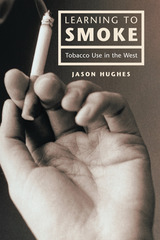
Hughes traces the transformations of tobacco and its use over time, from its role as a hallucinogen in Native American shamanistic ritual to its use as a prophylactic against the plague and a cure for cancer by early Europeans, and finally to the current view of smoking as a global pandemic. He then analyzes tobacco from the perspective of the individual user, exploring how its consumption relates to issues of identity and life changes. Comparing sociocultural and personal experiences, Hughes ultimately asks what the patterns of tobacco use mean for the clinical treatment of smokers and for public policy on smoking. Pointing the way, then, to a more learned and sophisticated understanding of tobacco use, this study will prove to be essential reading for anyone interested in the history of smoking and the sociology of addiction.
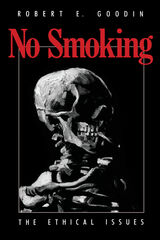
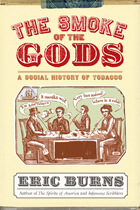
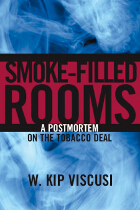
With Smoke-Filled Rooms,W. Kip Viscusi provides unexpected answers to these questions, drawing on an impressive range of data on several topics central to the smoking policy debate. Based on surveys of smokers in the United States and Spain, for instance, he demonstrates that smokers actually overestimate the dangers of smoking, indicating that they are well aware of the risks involved in their choice to smoke. And while smoking does increase medical costs to the states, Viscusi finds that these costs are more than financially balanced by the premature mortality of smokers, which reduces their demands on state pension and health programs, so that, on average, smoking either pays for itself or generates revenues for the states.
Viscusi's eye-opening assessment of the tobacco lawsuits also includes policy recommendations that could frame these debates in a more productive way, such as his suggestion that the FDA should develop a rating system for cigarettes and other tobacco products based on their relative safety, thus providing an incentive for tobacco manufacturers to compete among themselves to produce safer cigarettes. Viscusi's hard look at the facts of smoking and its costs runs against conventional thinking. But it is also necessary for an informed and realistic debate about the legal, financial, and social consequences of the tobacco lawsuits.
People making $50,000 or more pay .08 percent of their income in cigarette taxes, but people with incomes of less than $10,000 pay 1.62 percenttwenty times as much. The maintenance crew at the Capitol will bear more of the "sin tax" levied on cigarettes than will members of Congress who voted to boost it.
Cigarettes are not a financial drain to the U.S. In fact, they are self-financing, as a consequence of smokers' premature mortality.
The general public estimates that 47 out of 100 smokers will die from lung cancer because they smoke. Smokers believe that 40 out of 100 will die of the disease. Scientists estimate the actual number of 100 smokers who will die from lung cancer to be between 7 and 13.
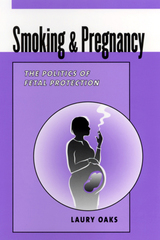
The 1966 edition of the leading medical textbook states that pregnant women can safely smoke half a pack of cigarettes a day. Yet today, women who smoke during pregnancy are among the most vilified figures in public health campaigns. Laury Oaks argues this shift is not due solely to medical findings indicating that cigarette smoking may harm the fetus. Also responsible are a variety of social factors that converged more than a decade ago to construct the demonized category of the “pregnant smoker.”
This book charts the emergence of smoking during pregnancy as a public health concern and social problem. Oaks looks at the emphasis public health educators place on individual responsibility, the current legal and social assertion of fetal personhood, the changing expectations of pregnant and prepregnant women, and the advent of antismoking campaigns. She explores how public health educators discuss “the problem” with one another, how they communicate with pregnant smokers, and how these women themselves understand the “risk” of fetal harm. Finally, Oaks discusses the various meanings of “objective” statistics on the effects of smoking on the fetus, exploring the significance of cultural context in assessing the relative importance of those numbers. She argues that rather than bombarding pregnant women with statistics, health educators should consider the daily lives of these women and their socioeconomic status to understand why some women choose to smoke during pregnancy. Without downplaying the seriousness of the health risks that smoking poses to women and their babies, the book supports new efforts that challenge the moral policing of pregnant smokers.

Stern writes of addictions and passionate attachments, of the body and bodily pleasure, of autobiography and cultural history. Smoking is Stern's seductive pretext, her way of entering unknown and mysterious regions. The Smoking Book begins with intimate and vivid accounts of growing up on a tobacco farm in colonial Rhodesia, reminiscences that permeate subsequent excursions into precolonial tobacco production and postcolonial life in Zimbabwe, as well as dramatic vignettes set in Australia, the United States, Scotland, Italy, Japan, and South America. Stern has written a book, at once intensely personal and kaleidoscopically international, that weaves the intimate act of a solitary person smoking a cigarette into a broad cultural picture of desire, exchange, fulfillment, and the acts that bind people together, either in lasting ways or through ephemeral encounters.
The Smoking Book is for anyone who has ever smoked or loved a smoker (against their better judgment); it is for those who have never smoked or for those who mourn the loss of cigarettes as they would grieve for a lost friend. But mostly, The Smoking Book is for all those who are smoldering still.

How do smokers evaluate evidence that smoking harms health? Some evidence suggests that smokers overestimate health risks from smoking. This book challenges this conclusion. The authors find that smokers tend to be overly optimistic about their longevity and future health if they quit later in life.
Older adults' decisions to quit smoking require personal experience with the serious health impacts associated with smoking. Smokers over fifty revise their risk perceptions only after experiencing a major health shock--such as a heart attack. But less serious symptoms, such as shortness of breath, do not cause changes in perceptions. Waiting for such a jolt to occur is imprudent.
The authors show that well-crafted messages about how smoking affects quality of life can greatly affect current perceptions of smoking risks. If smokers are informed of long-term consequences of a disease, and if they are told that quitting can indeed come too late, they are able to evaluate the risks of smoking more accurately, and act accordingly.
READERS
Browse our collection.
PUBLISHERS
See BiblioVault's publisher services.
STUDENT SERVICES
Files for college accessibility offices.
UChicago Accessibility Resources
home | accessibility | search | about | contact us
BiblioVault ® 2001 - 2025
The University of Chicago Press





